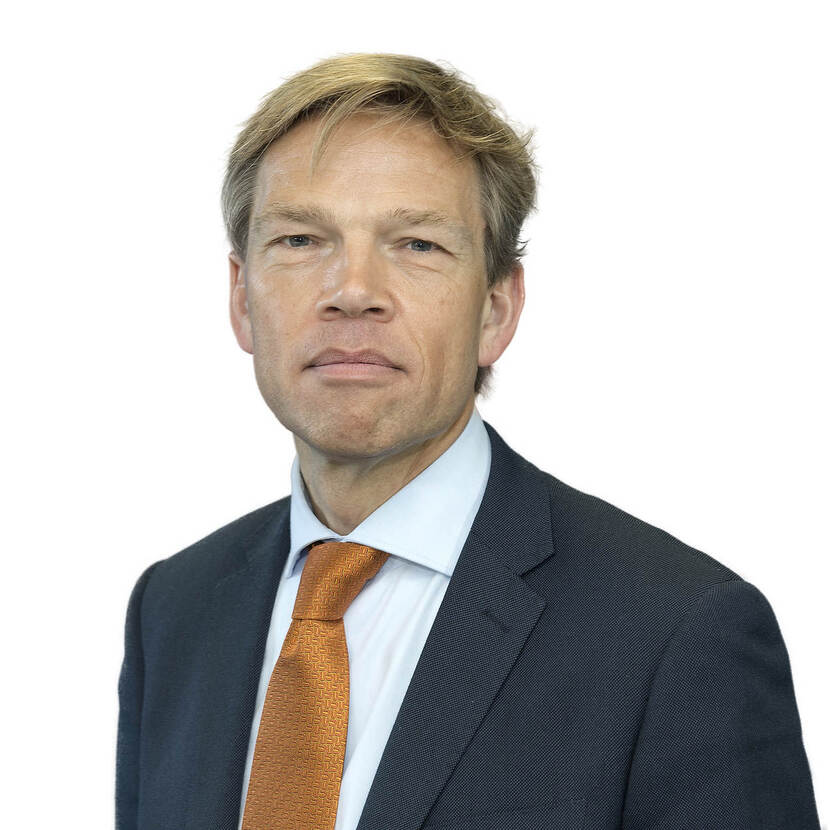The ambassador - Türkiye
The ambassador

Joep Wijnands
See the curriculum vitae of ambassador Wijnands onrijksoverheid.nl (Dutch)
Ambassador Joep Wijnands
In 2022 Joep Wijnands took up his new post in Ankara, a uniquely important embassy in part due to the large number of Dutch citizens with a Turkish background. ‘Despite differing views on a number of issues, the Netherlands and Türkiye are close partners’, says Mr Wijnands. Together with his team he aims to enhance mutual understanding and strengthen relations between the two countries.
What was your first impression of the country?
‘What first struck me is the country’s geographic location. Türkiye borders eight countries, including Iran, Iraq and Syria. It also shares the Black Sea coast with five countries, and its mainland is not far from Cyprus in the Mediterranean. So this country has an interesting geographic location in a region facing major challenges. The importance of Türkiye both in the region and beyond is immense. You see that reflected in the diplomatic corps in Ankara, with just about every country represented here.
There’s also great diversity throughout the country. You can swim in the sea and then enjoy some great skiing in one of the nearby ski resorts. The same is true of the Turkish people: modern and conservative attitudes go hand in hand here.
I’ve been impressed by the overwhelming hospitality and friendliness of the people here. It sometimes takes no more than a glance for people to offer their help, which is something I really appreciate! And with my sweet tooth, the abundance of sweet treats here quickly caught my eye. I’ve already indulged in a lot of kadayif and künefe.’
What do the Dutch embassy and consulate-general do for Dutch people in Türkiye?
‘We’re available 24/7 for Dutch nationals here. Primarily for people dealing with an emergency. That could be holidaymakers or Dutch nationals facing other types of problems here.
You can also come to us with passport and visa matters, and we help Dutch businesses too. We provide information about the local market and put them in touch with potential partners. This works both ways, of course, as we also provide information to Turkish companies wishing to invest in the Netherlands. That’s something we have in common with Türkiye: we’re both enterprising peoples!'
What are the main policy themes that Türkiye and the Netherlands are working on?
‘We’re working on several themes, but the importance of our consular work should certainly not be underestimated. In terms of sheer numbers, we’re in the top-three of all Dutch missions globally. What’s more, the Netherlands is the world’s largest foreign investor in Türkiye: a pretty impressive statistic. Our partnerships focus primarily on sustainability, in areas like agriculture, digitalisation and urban liveability. We also have strong cultural ties. Türkiye is one of the focus countries of our international cultural policy, and we are working to further strengthen the collaboration between the Dutch and Turkish cultural sectors.
Security is another key topic. Türkiye and the Netherlands are NATO partners, and in times of war we need each other more than ever. Safeguarding security also requires us to work together in the fight against terrorism, organised crime and illegal migration. A concrete example of this is the anti-ISIS coalition. Türkiye and the Netherlands jointly chair a working group on Foreign Terrorist Fighters within the coalition.’
The Netherlands is home to large group of Dutch nationals with a Turkish background. What’s your view on that?
What do you hope to achieve as ambassador in the coming years?
Along with the rest of the team I’ll also do what I can to enhance our mutual understanding. We are close partners, partly due to our NATO membership. But we do also have our differences, for example on issues such as the rule of law, human rights and gender equality. It’s important that we understand each other’s position as best we can.
On a personal level, it’s my ambition to swim across the Bosporus and take part in the annual swimming race between Istanbul’s Asian and European coasts.'




